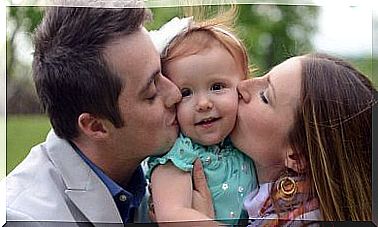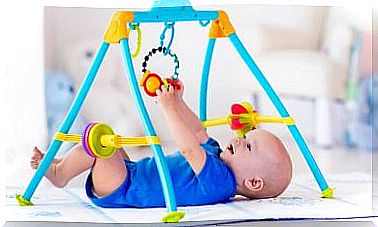How Do You Act Positively When Your Child Pushes The Limits?

Does your child push the limits every day? Does he not understand the concept of standards? Don’t despair, that’s exactly where the secret to success lies. Just try to act positively without losing your cool or patience.
Common phrases such as “I don’t want to take a shower”, “I’m not going to sleep alone”, “I do what I want” and so many others are not impossible to deal with.
It is absolutely normal for children to challenge and test the limits and to experiment with how far they can go. That’s why it’s important not only to set the limits, but also to delimit them as best as possible.
Why act positively?
Forget methods based on completely restricted education. Imposing the undisputed supremacy of both physical and emotional punishment is also out of the question. This behavior will only be a negative mark in the child’s life.

Take your time with patience and moderation. Be calm and, above all, lots of love. Only in this way will you be able to understand what is really going on. What is behind such hostile behavior?
Surely the reasons why your child challenges you are like little pieces of the puzzle in which you will find the solution.
In any case, this solution involves no more than simply acting positively. Sounds simple. But with the day to day of any adult person it can become extremely complicated.
You will find that the most frequent reasons for your children’s behavior can sometimes be boiled down to attracting attention.
If that’s not the problem, try to see if your child is simply not testing the limits or is frustrated by something that happened at school or even to you.
5 tips for setting boundaries
Even if it doesn’t seem like it, it’s possible to set boundaries without being rigid, just as it’s possible to create the best children based on flexibility.
Of course, this does not imply allowing everything, but educating them explaining the reasons for the prohibitions. Teach, and don’t give orders all the time. Like? See these tips for dealing with complex situations:

Always build positively
Paying more attention to achievements and achievements is a very powerful and valuable way to educate. Don’t keep pointing your fingers at anything the child does wrong.
You must recognize and demonstrate your positive actions and good behaviors. This encourages and encourages the child to maintain the desired behaviors and actions.
Work with a “positive opposite”
Avoiding the word “NO” is possible and its effects are wonderful. It is not a matter of accepting even the unacceptable, but finding a positive way to reject the idea. That is, look for a way to say “no” with a “yes”.
For example, instead of saying “don’t leave your clothes on the floor” it’s better to choose “take the clothes to the laundry basket”.
Transparency preserves motherhood
Always be clear with house rules and values. Be clear even when setting boundaries. No matter what age, every child should know the rules of the house.
Set mealtimes, playtimes, and bedtimes. Also define household chores and allowable behaviors in the family.
Personal power of action and not of reaction
Don’t get angry or react explosively to the child’s behavior. Show that you don’t approve of this attitude. Keep calm and ponder how best to convey to your child that he must learn to correct his actions.
Do not get into a fight for no reason, as this will give the child the opportunity to challenge you. You might say, “We’ve already talked about the consequences of your actions, I won’t argue about that.”
No to second chances, yes to alternatives
It is always positive to offer alternatives to children, no matter what their age. This is also useful to avoid any second chances.
Being consistent and firm in a decision is essential to reinforcing good habits. Every action has consequences. So it’s good for kids to see this work in practice. When giving a new opportunity, you teach that your word has no weight.
If you don’t speak seriously, your child may find a way around the rules as they are not strict. This can have a visible consequence even during adolescence.









